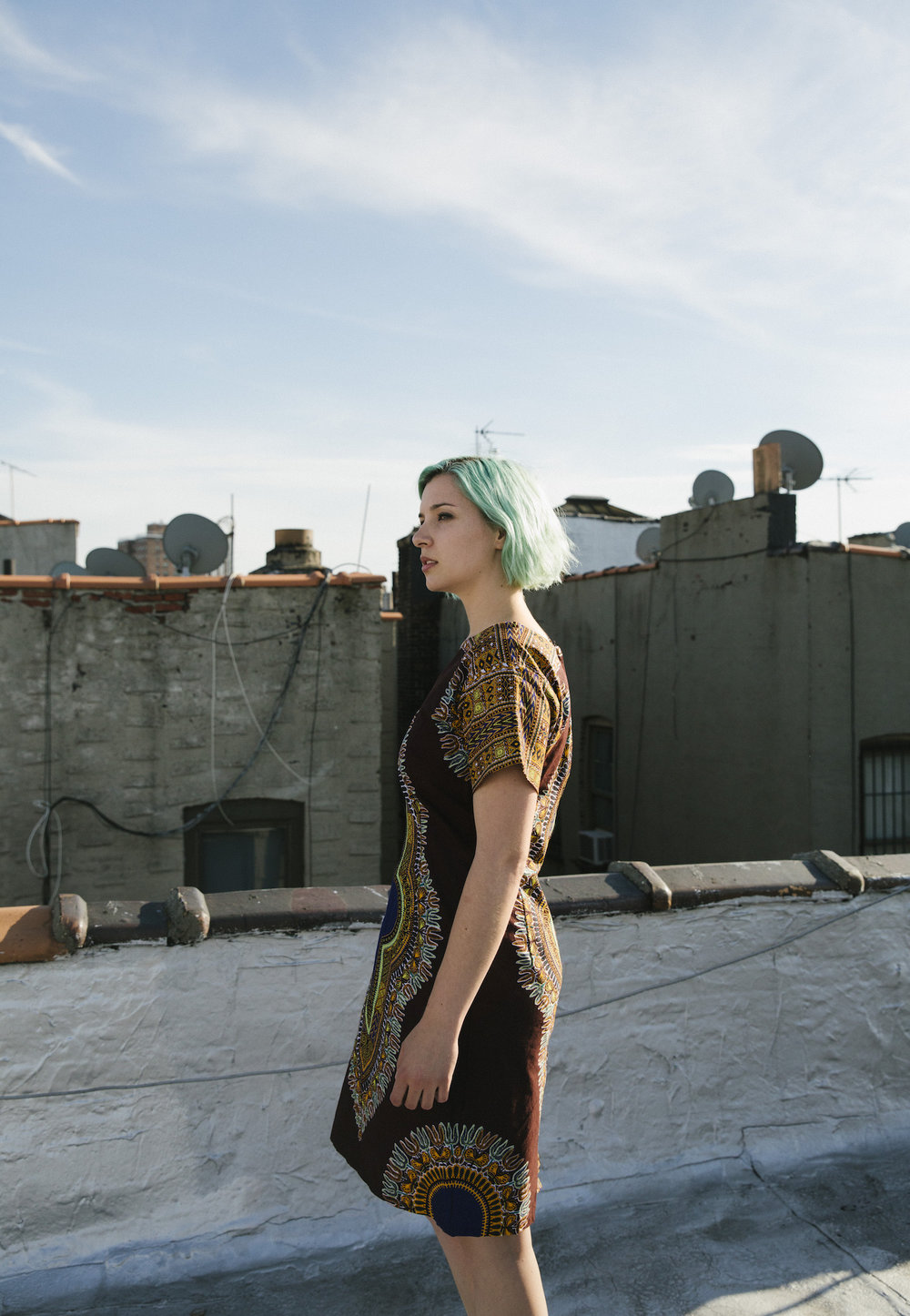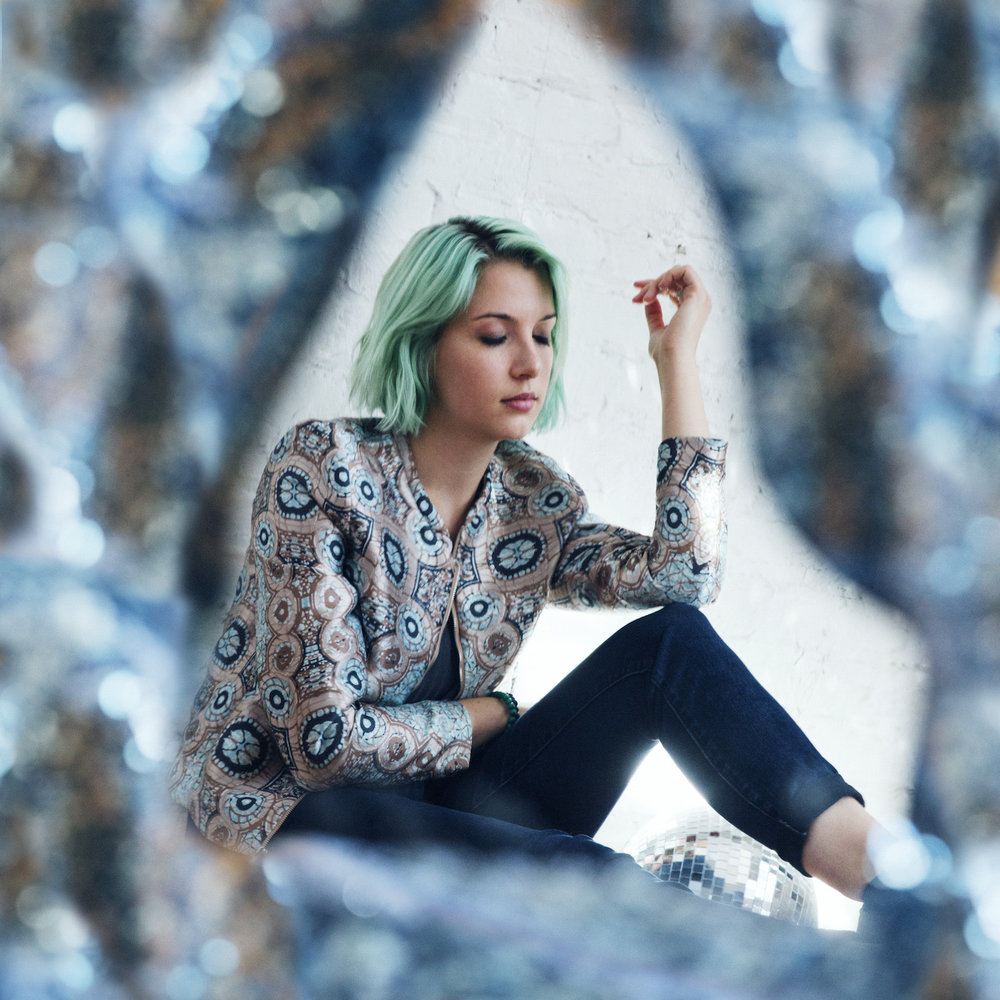
Photography: Ivan Clow
In closing our Womxn of Music series, it’s like that popular saying — it’s not goodbye, it’s see you later. For our final chapter, we speak with Sulene van der Walt, the South African 26 year old musician and film composer living in New York.
As a freelancing artist, Sulene is the Swiss Army Knife of the music industry. From touring, shredding as the lead guitarist for Nate Ruess (of fun.), composing film & TV scores to writing her own music, she’s continually putting in the work to bring her ideas to life. This year she’s busy finishing up her next album — and of course, she’s producing all of the art, video content and photography to go with it.
We chatted with her to learn more about her journey in music, where her inspiration comes from and the different challenges she faces working in music.

Marmoset: What was music’s role in your life as you were growing up?
Sulene: Since the early days of singing into my hairbrush, I diligently started studying music. I have a musical family and grew up going to music lessons and I went to Berklee College of Music to study composition and film scoring.
During that time I really went inward and developed my skills. My music became more complex and I experimented a lot — I mostly composed for film and television and wrote instrumental pieces. As I finished college I realized I missed songwriting so I dove into that again and back into the pop world.
M: How do you view your music evolving and where are you headed?
Sulene: In the last three years my music has become simpler in some ways. Much clearer, refined… it’s totally pop music! Instead of showcasing my musicality at every opportunity, the challenge now is how to convey a clear message in a pop song, which is actually surprisingly difficult to do! A lot of people think pop music is easy to make because it sounds effortless, but it takes a ton of effort and clear communication lyrically.
My music has evolved from an emo place into a more dance-oriented sound. I learned how to produce which meant a whole world opened up to me as far as vibe and movement and tempo and how something makes me body move on stage. I also started DJing, so I naturally become inspired by dance music. I even shed the guitar on stage sometimes now and just sing and dance, and it feels right.
M: When growing up, who were some artists you looked to for inspiration?
Sulene: Well, I grew up listening to The Spice Girls and Britney Spears. I used to dance around my room singing into my hairbrush and copying their dance moves. I even had a DVD by Britney Spears’ choreographer that broke down her dance sequences in her music videos. I guess that’s not entirely different from what I do on stage now.
These days I’m massively inspired by Madonna and Lady Gaga — two women who continuously reinvent themselves, who are insanely musically talented and who are total badasses. They’ve pushed the boundaries of art and stigmas and forced people to face thought-provoking material.
My latest inspiration was Lady Gaga’s acceptance speech at The Oscars; she talked about hard work and it really resonated and put a fire under me.
M: What’s something you’re proud to have accomplished as an artist?
Sulene: I’m proud that I wrote some songs that people connect with, I kinda did it without even realizing — when I wrote the Strange EP it was more of a cathartic admission of certain facts in my life; like I miss my band in college, being sad that I had lost my best friends, that I was growing up (“What We Had”), or that I broke up with a lover but still deeply missed them and would fantasize they still wanted me (“Haunting”).
In a way, I’m proud that I have the guts to say these things on stage. I even say little intros now, sort of like a monologue, about the songs. I hear the audience sing the lyrics with me or sing back the gang vocal parts on “Haunting” and I understand in that moment that the song has now taken on a life of its own. It’s not just mine now — it belongs to a bunch of people. It’s a very fulfilling and deeply moving feeling.

M: What do you think it takes for women working in the music industry to “make it?”
Sulene: Being a woman in the music industry is such a complex thing. It comes with both its merits and its disadvantages.
It’s tough to know when to use your feminine characteristics — the things that make you who you are, think the way you think, look the way you look — and when to hide them. It’s an ongoing battle for me. My advice is to choose your battles. There will be sexism, you will probably be pursued at some point, you will probably feel like you need to prove yourself as a musician. You might even find yourself doing things to be “just one of the guys” in the music biz, that’s what happens when you’re somewhat of a rarity within a scene.
Be aware of it all — be aware of how much time you spend with the guys, if you’re in close quarters alone too often, how much you drink, what you wear, how people talk to you, how they might be overly touchy with you or hug you a lot or comment on the way you look. All these things… I used to sweep them under a rug and think “that’s just the way it is.” Now I realize that the power inside, as a woman, or really just as a person, is to say wait a minute, that’s actually not how it has to be.
I’m not afraid to call someone out if they make me uncomfortable and I don’t answer after-hours phone calls from people I work with. Know yourself, know who you are, what you’re okay with and what you’re not. It’s a lot more fun working as a performer once you have those honest conversations with yourself. That’ll also be an ongoing journey as you navigate this nuanced career as a musician and performer.
It’s a real grey-area type of job because so much of your work involves hanging out and being at venues and bars, being social, networking, being in the right place at the right time. And a lot of the time, there are no clear rules and boundaries in this gig. So you have to set those for yourself so that you can focus on your art and goals.
Most importantly, I would tell a woman starting out in the music industry to have convictions in her ideas. Always have an open mind and heart and listen to others, but deep down stay true to who you are and what you have to offer. Don’t be afraid to show your unique perspective in your art even if people don’t flock to it right away or tell you how amazing it is. Sometimes something ground-breaking or new is just a little bit outside of the norm.
